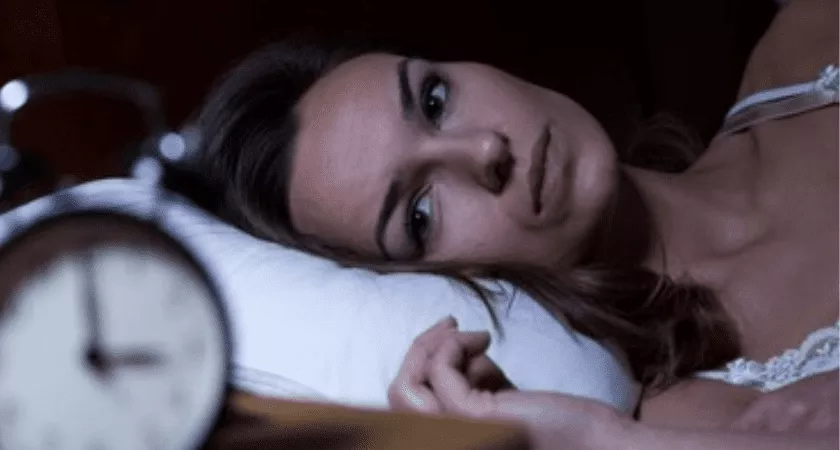Published on: March 22, 2021

While the rest of the world is sleeping, many people have trouble falling asleep due to insomnia. Sleep problems (insomnia) may come and go for most of us, but approximately 10 percent of Americans struggle with chronic insomnia. The negative impacts of insomnia are many, ranging from fatigue, poor memory, and low motivation to an increased risk of depression and mood disturbances. Not getting enough sleep can also lead to weight gain and obesity, high blood pressure, type 2 diabetes, and heart disease. It can even make you look older.
Many experts have different definitions of insomnia, says Johns Hopkins sleep expert Rachel Salas, M.D. But insomnia is basically a condition where people struggle to fall asleep or stay asleep for at least 3-4 hours. If it happens at least 3 nights a week and lasts for at least 1 month, you may be experiencing what sleep experts call persistent insomnia disorder.
Because of the toll insomnia can take on your mental health and well-being, it’s worth recognizing the symptoms and getting help from your healthcare providers. If you struggle with daytime sleepiness, irritability, problems concentrating, and forgetfulness, you could have an insomnia disorder.
There are many possible causes of insomnia. Psychological and emotional issues, such as stress, depression, and anxiety, can leave you tossing and turning. Certain medications may also cause sleep issues. These can include SSRI antidepressants, ACE inhibitors, beta-blockers, blood pressure, and allergy medications. Or you could have a medical condition such as sleep apnea or restless leg syndrome that keeps you from sleeping soundly.
Treating insomnia first requires understanding what’s causing it. For example, if a medication you’re taking is causing it, switching to a different drug may help.
Before resorting to sleeping medications that can leave you feeling groggy the next day, experts recommend trying non-pharmaceutical strategies first to address insomnia. Cognitive-behavioral therapy (CBT) can help many people overcome insomnia by changing their thought patterns, decreasing anxiety, and adopting healthy sleep behaviors. Following are some strategies based on CBT for insomnia.
Maintain a strict schedule of sleeping and waking throughout the week, including the weekends, recommends Dr. Salas. While most people need 7 to 9 hours of sleep per night, getting a consistent amount of quality sleep maybe even more important than quantity, she says. Set a bedtime and wake-up time for yourself to train your body’s biological clock. This should eventually result in a productive day rather than an exhaustive one.
You can’t force your brain to fall asleep on command as you do when you press the off button on your computer to shut it down. Instead, your brain needs help to slowly shift to sleep, and this mainly depends on your surroundings.
If you continue to struggle with insomnia after trying these bedtime strategies, remember that professional help is available. Harmony United Psychiatric Care has a large team of mental health professionals experienced in treating Insomnia, anxiety, depression, and other mental health conditions. Our Telepsychiatry service makes it easy for you to get help from the comfort and privacy of your home. We’ll get you scheduled quickly so you can start feeling better soon. To schedule an appointment, visit our Book Appointment page.
Discover the essence of Harmony United Psychiatric Care through our impactful numbers. Our experienced team is dedicated to fostering mental well-being.
10
+
Years of Experience
With 10 years of unwavering commitment to mental health, we bring a wealth of experience to support our patients on their journey.
About Us58
+
Providers
Our dedicated team comprises 58 skilled therapists', psychiatrists', psychologists', ensuring personalized and expert care for each individual.
Providers13
+
Locations
Across multiple locations, we extend our reach to provide accessible mental health care tailored to diverse communities.
Locations70000
+
Patients Served
Over 70000 patients have entrusted us with their mental well-being, experiencing compassionate care and positive outcomes.
Book AppointmentWelcome to the latest edition of “Discover Harmony,” the newsletter from Harmony United Psychiatric Care! In this edition, we bring you insights, updates, and valuable information to support your mental well-being journey.
Subscribe to newsletter